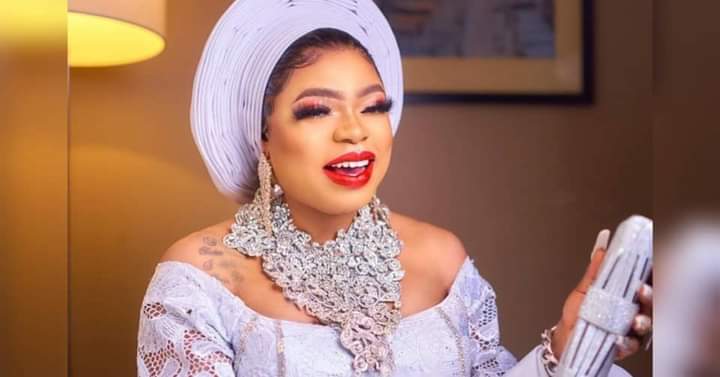New findings in Bobrisky’s case reveal surprising involvement from high-ranking prison officials, including the prison controller and three others.
Idris Okuneye, widely recognized as Bobrisky, might soon encounter new criminal charges. Allegations suggest that he bribed officials to obtain private accommodation while serving his jail sentence and influenced the Economic and Financial Crimes Commission (EFCC) to dismiss money laundering charges against him.
A panel of investigators, appointed by Minister of Interior Olubunmi Tunji-Ojo, has submitted its findings and recommended that Bobrisky face charges for defamation and criminal activities.
The panel, led by Magdalena Ajani, the ministry’s Permanent Secretary, was assigned to investigate Bobrisky’s assertions following his release from prison on August 5. He had been sentenced to a six-month imprisonment on April 12 for currency abuse.
The panel’s report found no evidence indicating that the crossdresser left the Kirikiri Custodial Centre during his imprisonment. However, it noted that his public statements had tarnished the correctional service’s reputation.
The Department of State Services (DSS) was called upon to look into the possibility that Bobrisky, either personally or via intermediaries, offered bribes to officials from the EFCC or correctional services. Should these allegations be verified, it has been suggested that charges be filed under the Corrupt Practices and Other Related Offences Act.
The report suggested that the Nigerian Correctional Service should initiate defamation lawsuits against Bobrisky according to sections 373-375 of the Criminal Code Act due to his false allegations about circumventing the prison system and damaging the institution’s reputation.
Four correctional officers, including a former Controller of Corrections, were indicted and faced recommended disciplinary action.
The former controller, who is currently facing significant criticism, was accused of approving Bobrisky’s transfer between custodial centres without the necessary documentation; this action was later backdated. Additionally, others facing disciplinary measures include a Deputy Controller who admitted Bobrisky into the medium-security facility without maintaining proper records.
A senior officer from the Nigerian Correctional Service clarified that Bobrisky’s housing arrangement was tailored to his unique situation, characterizing it as a “special facility” instead of preferential treatment. The officer noted, “Bobrisky presents physically as male below the waist and female above it—a scenario we had not previously dealt with. To prevent potential abuse, he was placed in a separate cell, which he mistakenly interpreted as being given a private apartment.”
The case has sparked renewed conversations about how crossdressers and transgender individuals are treated and their rights in Nigeria. Human rights advocates such as Femi Adeyeye have urged for correctional facilities to provide special accommodations that respect individuals’ gender identities.
Adeyeye expressed concerns about the conditions at Kirikiri Custodial Centre, stating that humane treatment for all inmates is a government responsibility. “There should be a dedicated cell for transgender individuals, and this reform must be prioritized by the government,” he asserted. Meanwhile, another activist, Michael Adaramoye, highlighted the importance of balancing Nigeria’s respect for personal rights to sexual freedom with broader societal considerations.
The panel additionally suggested conducting a comprehensive audit of all correctional facilities to increase transparency and prevent future incidents. It also recommended ensuring adequate funding for inmate welfare services, removing any commercial interests, and partnering with civil society organizations to enhance oversight.
Human rights attorney Toyin Taiwo-Ojo commented, “The government’s ambiguous position on homosexuality requires reevaluation to prevent future issues in situations like Bobrisky’s.”
The controversy has highlighted the increasing challenges that correctional institutions encounter as they strive to adapt to changing social realities and uphold inmates’ rights, all while maintaining order within their facilities.
Peoplesmind


